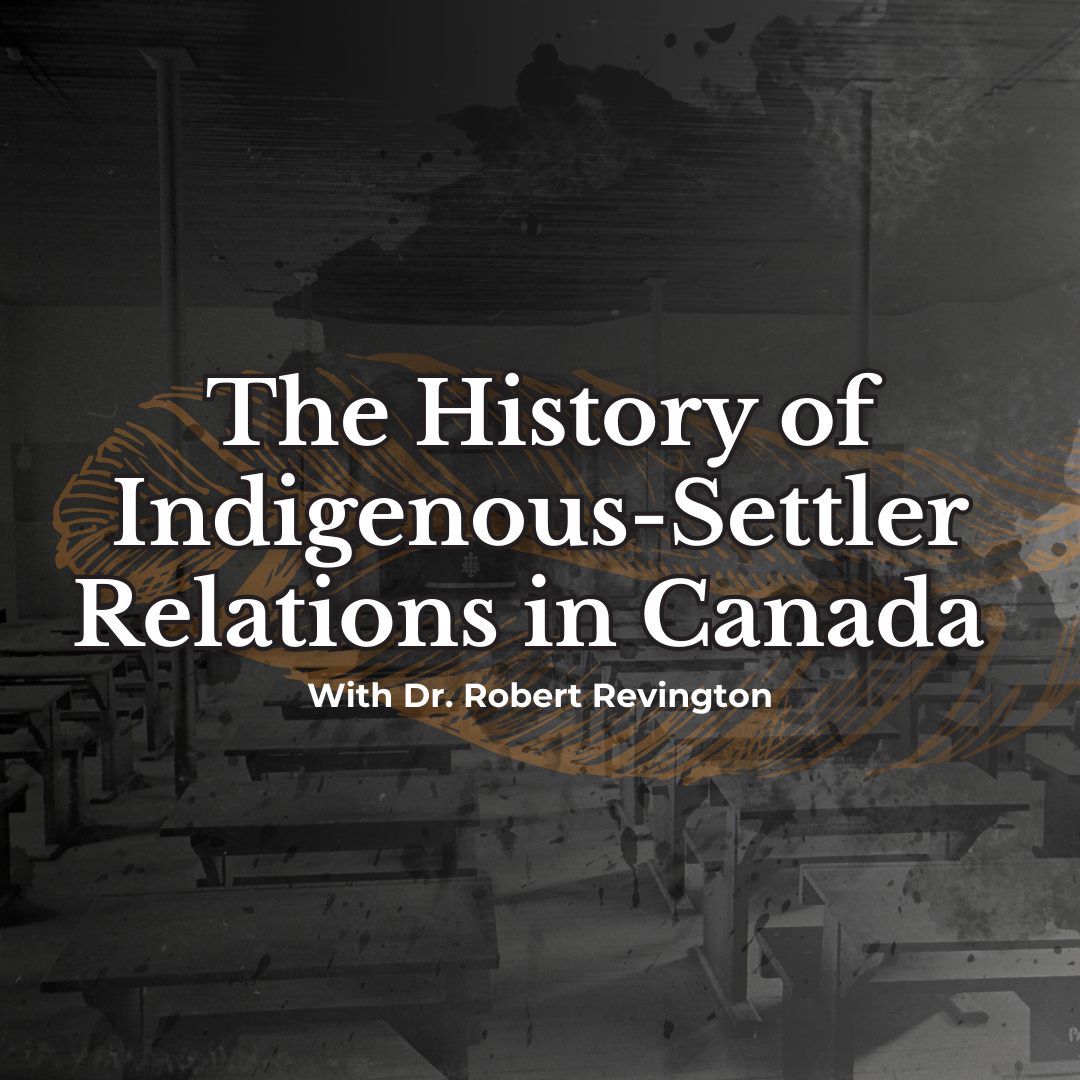New Course: The History of Indigenous-Settler Relations in Canada
For generations, many of us in Canadian churches were not taught the full story of how this country came to be, or what that process cost Indigenous communities. Treaties might have been mentioned, and residential schools noted in passing, but the depth of harm—and the church’s role in it—was rarely explored with honesty. That silence hasn’t just left gaps in our knowledge; it has caused ongoing harm.
Our newest learning offering on CHURCHx - The History of Indigenous-Settler Relations in Canada with Dr. Robert Revington, is one way to respond. This is a history course that covers everything with raw honesty. Throughout the course participants will have oppertunities to listen, to learn, and to reflect on what reconciliation asks of us as people of faith.
This course is for those who have sat through a land acknowledgement and wondered what it really means. It is for those who have heard an apology from the church but aren’t sure what should come next. It is for preachers searching for words of lament, youth leaders preparing the next generation, and anyone who feels uncertain but wants to begin.
Dr. Revington guides learners through real events, real harm, and real responsibility. With care and clarity, the course explores how residential schools came to be, how theology and policy shaped each other, and how Indigenous communities—many of whom continue to follow Jesus—are calling the church toward truth, repair, and deeper relationship.
What the Course Offers
Over the course of seven modules, learners are guided through key moments in the history of Indigenous-settler relations in Canada, including:
The early missionary movements and how Christianity was introduced—often imposed—on Indigenous communities.
The development and justification of the residential school system, and how churches and governments worked together in its creation and maintenance.
The theological and cultural assumptions that underpinned these systems—ideas about “civilization,” “progress,” and Christian superiority.
The painful truths uncovered by the Truth and Reconciliation Commission, including firsthand accounts of trauma, abuse, and cultural genocide.
The churches’ apologies—what they said, what they didn’t say, and what’s still needed.
Theologies and practices of decolonization: from unsettling our worship to confronting how biblical narratives have been used to justify conquest.
The resilience of Indigenous communities, many of whom continue to hold Christian faith while calling the church to change.
Dr. Revington doesn’t offer easy answers, but he does give clarity, context, and a thoughtful structure for engaging with this complex and painful history.
About Dr. Robert Revington
Dr. Robert Revington completed his PhD in Church History at Knox College in the University of Toronto in 2023. He has worked as a postdoctoral researcher at Queen's University and taught Church History at the Vancouver School of Theology. He is also an author. Among other things, he will be the author of an upcoming biography of Lucy Maud Montgomery (the author of Anne of Green Gables) focusing on her identity as a Canadian Presbyterian; it will be published by Eerdmans Publishing. He is also working on a study of the history of biblical scholarship in Canada. Finally, Robert is an elder at St. Andrew's Presbyterian Church in Aurora, a men’s league hockey player, and a Hamilton Tiger-Cats season ticket holder.
What to Expect
The course is structured in seven modules, with short videos, self-reflections, and opportunities for deeper discussion. It’s designed to be accessible, thoughtful, and respectful of your time and energy.
You’ll engage with primary sources, survivor accounts, theological critiques, and church documents. You’ll hear hard truths, and you’ll be invited to reflect—not just on what others did, but on what we do now.


